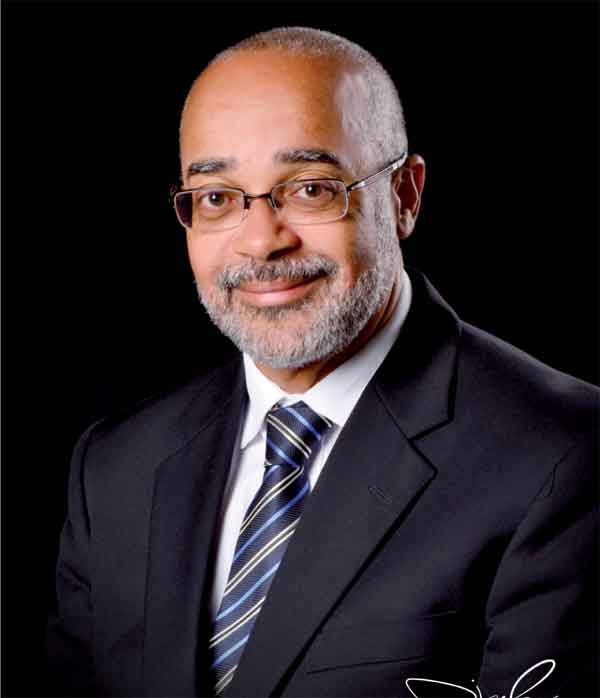THE Organisation of Eastern Caribbean States (OECS) in collaboration with the United Nations Population Fund (UNFPA) hosted a virtual dialogue on the 17 and 18 November that brought together more than 40 statistical experts from 17 countries to discuss challenges and opportunities of the new normal for statistical operations for population censuses – the biggest and costliest national statistical undertaking.

The aggregated cost for all OECS Member States for the last census conducted ten years ago was approximately US$5.34m or US$7.41 per Capita. This regional dialogue focused on the methodological, administrative, and logistical implications for postponing and re-dating a population and housing census (PHC).
This information and the experience-sharing event highlighted opportunities and lessons learnt from the impact of COVID-19 on PHCs world-wide. It zoomed in on the role of high-level policymakers; budgeting; procurement of census equipment and personal protective equipment (PPEs); and hiring and training field staff along with the associated risks and mitigation measures. Currently, census budgeting, postponement and re-dating is the reality in the OECS Member States. The pre-COVID-19 OECS PHC calendar had two Member States scheduled for May 2020 and the remaining seven in May and June 2021. Most countries are now considering postponing to a later date in 2021 and others in 2022.
The national statistics office (NSO) in each Member State, which has the legal mandate to undertake the PHC, is grappling with the impact of COVID-19 on census operations. Among the issues are: introducing new modalities for data collection; reduced budget allocation since resources had to be diverted to COVID-19 responses; increased costs to comply with national and global protocols which include the purchase of masks, shields, gloves, sanitizers. This meant the countries had to give concerted consideration to the timing of the census and how to address the budget shortfall.
Director General of the OECS Dr.Didacus Jules said “One of the outcomes of the pandemic is that it has created a heightened awareness of the critical importance of data in making an accurate assessment of any situation and in enabling the design of targeted interventions and solutions. Data are now one of the greatest assets of any organisation and a critical tool in their arsenal for competitiveness and relevance. The OECS places great emphasis on national, regional and international collaboration in data collection, data analytics, and its application to policy and programme formulation.”
The imperative for data, and in the case of the OECS region, country comparable data and official statistics, has been elevated to be equipped to measure progress toward economic integration. Additionally, given the last PHC was conducted in 2010 and 2011, new population data are required to measure the impact of COVID-19; to know where people are geographically located in case of natural disasters; the quality and resilience of houses to withstand environmental changes and; to measure progress on achievement of OECS-specific Sustainable Development Goal (SDG) indicators. To ensure country comparability of data, OECS Member States will be using the harmonised OECS PHC questionnaire (which includes questions to measure the impact of COVID-19 on households), with minimal adaptation to suit their respective national context.
According to Seth Broekman, Deputy Director of the UNFPA Caribbean Office, accurate population data which are produced only by the census are not only important for development, but also for addressing COVID-19 as well as for preparedness for and response to the next years’ hurricane seasons that become more and more detrimental to the well-being and economies of small island developing states (SIDS).
The Indonesia and the Philippines experiences and lessons learnt were presented at the event and offered excellent and practical pointers on how to conduct a PHC in a COVID-19 context. Chief among them are: ensuring a whole-of-government approach; using national inter-agency arrangements that bring together stakeholders from the statistics, health, housing, research and economic planning; adapting data collection methods to protect the health and safety of enumerators and the population; using a statistical population register to inform logistics and collection modalities; supplying each field staff with a PPE package; and using innovative means to reduce the cost of the census.
The OECS’ collaboration with UNFPA and other development partners to support the OECS Member States conduct their respective PHC is destined to produce quality census data using processes and protocols that are compliant with international guidelines, recommendations and standards.










![.[L-R] Parliamentary Representative for Castries Southeast, Lisa Jawahir & Talk show host, Timothy Poleon](https://thevoiceslu.com/wp-content/uploads/2026/02/Lisa-Jawahir-Timothy-Poleon-380x250.jpg)
![Public Service and Utilities Minister Stephenson King delivered remarks [Photo credit: VP]](https://thevoiceslu.com/wp-content/uploads/2026/02/Stephenson-King-380x250.jpg)

